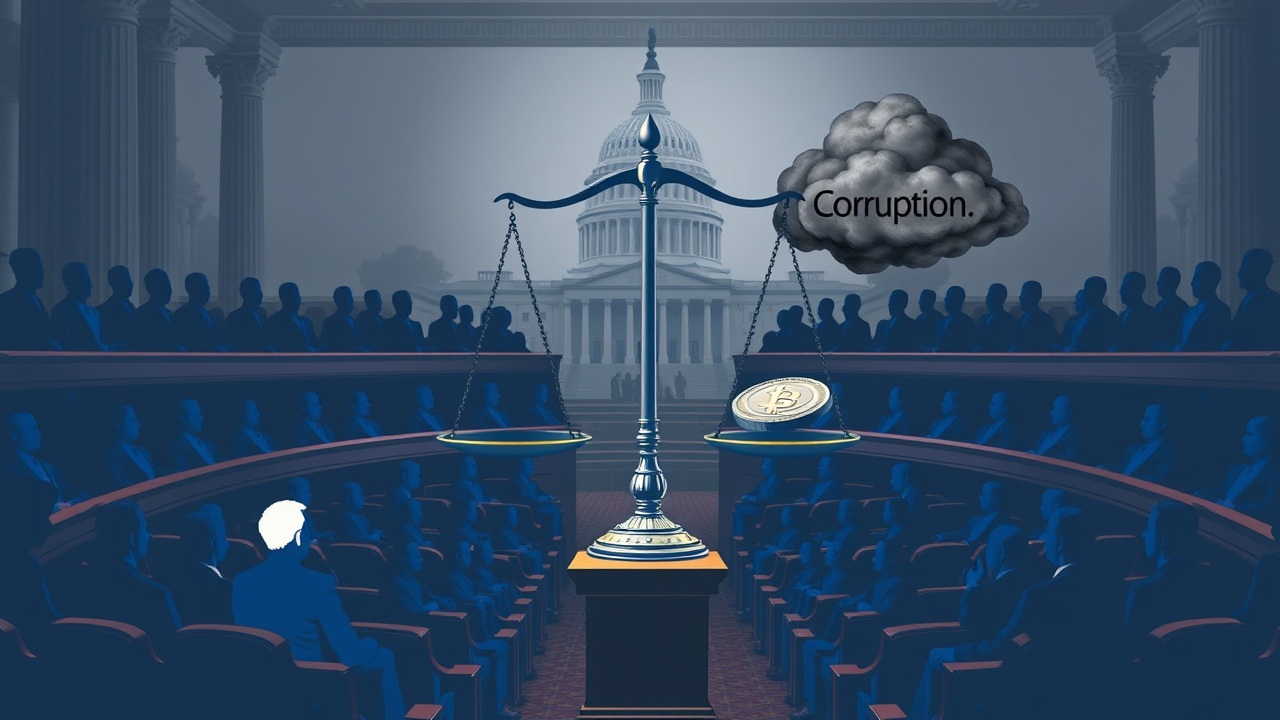Controversy Within the Democratic Party
Controversy has erupted within the Democratic Party following the advancement of stablecoin legislation in the U.S. Senate. On May 19, a coalition of 16 Democratic senators diverged from their party’s unified stance to move forward with a motion, setting the stage for a Senate debate on the bill. This surprising shift comes after some of these same legislators had previously stalled the bill, raising alarms about potential corruption linked to President Donald Trump’s cryptocurrency ventures. Notably, when the bill was reintroduced, it notably lacked any restrictions related to World Liberty Financial, the crypto company associated with the Trump family.
Internal Party Reaction
Progressive factions within the party reacted sharply, suggesting that those Democrats who supported the bill risk being challenged in the upcoming 2026 primaries. This reflects the widening ideological schism on cryptocurrency regulation among Democrats. During the Senate discussions, Mark Warner, a moderate Democrat, expressed his willingness to back the legislation, deeming it “not perfect, but it’s far better than the status quo.” He acknowledged the ethical dilemmas posed by the Trump family’s activities but contended that delaying regulatory advances due to such concerns would be a mistake, noting, “blockchain technology is here to stay.”
Kirsten Gillibrand, another Democratic senator and co-sponsor of the bill, followed suit by arguing that Trump’s alleged corruption should be tackled separately, stating that many of his actions are already illegal. In contrast, Elizabeth Warren, who oversees the Senate Banking Committee and has been a staunch watchdog against the crypto industry, voiced her disapproval, insisting that a bill enhancing the stablecoin market while enabling presidential corruption could jeopardize national security and consumer safety. This disagreement culminated in a pointed exchange on the Senate floor.
Opposition and New Proposals
Opposition from within the party is not fading either. Senator Michael Bennet of Colorado, who voted against the GENIUS Act, has introduced new legislation humorously named the “STABLE GENIUS Act,” designed to prohibit Congress members and high-ranking officials from engaging in digital asset transactions while in office.
Despite its unlikely chances of success, Bennet’s proposal underscores the existing divisions among Democrats on how to effectively address cryptocurrency issues. The progressive base criticized party leadership for negotiating with Republicans over what they see as unacceptable compromises. Earlier this year, frustrations peaked when Senate Minority Leader Chuck Schumer joined Republicans on a government funding resolution, which some activists argued undermined Democratic leverage.
Calls for Accountability and Party Fragmentation
As discussions around crypto deepen, figures such as Ezra Levin from the progressive group Indivisible have encouraged constituents to challenge Democratic lawmakers who supported the legislation. Amid this chaotic backdrop, the party’s internal strife is becoming more pronounced as activists voice their dissatisfaction with incumbents they believe are not adequately opposing Trump’s influence or pushing for stringent regulations in the crypto space. This intra-party conflict is compounded by recent turbulence surrounding the Democratic National Convention’s decision to rescind a vice chair nomination, illustrating the contentious nature of upcoming primary elections.
Conclusion: A Fragmented Democratic Party
With the legislative battle over stablecoins intensifying, Democrats appear increasingly fragmented, leaving them ill-positioned to unify against the perceived threats posed by digital currencies. This ideological rift highlights a broader narrative within the party, where the pragmatic approach to cryptocurrencies clashes with progressive ideals, suggesting that for now, the centrists have gained the upper hand.




